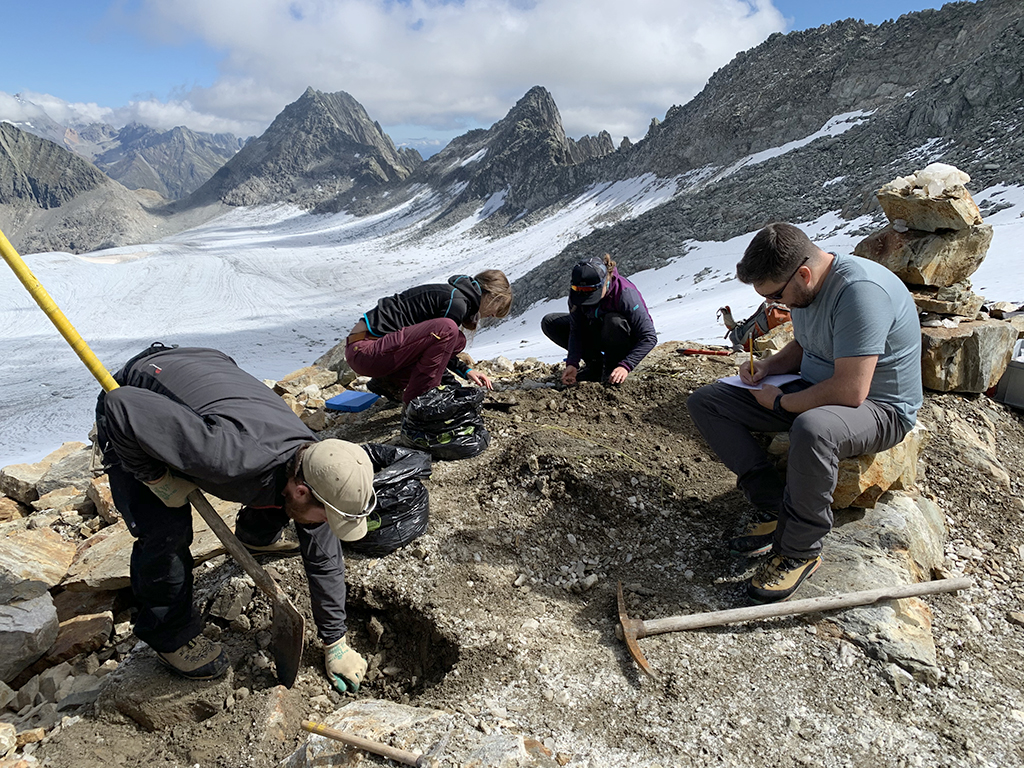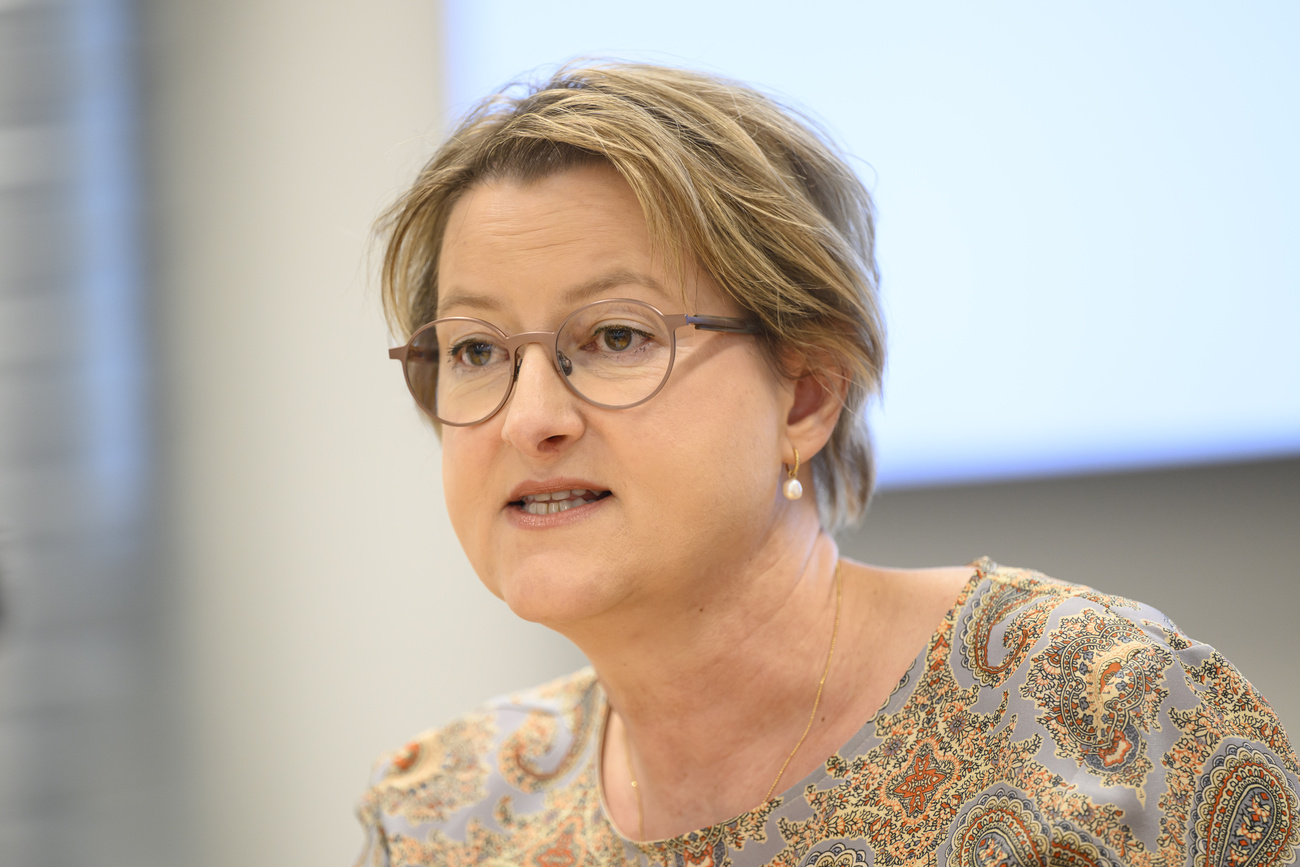
Prehistoric graves give insights into burial practices

A burial site from the Bronze Age has been discovered in a mountain village near the town of Sion in south-western Switzerland.
At least 18 graves, containing human bones and burial objects in stone-built coffin-like boxes from 2000 BC were unearthed when workers were digging for the foundations of an apartment building in Savièse, the Valais cantonal chancellery External linkannounced on Tuesday.
Archaeological finds from the Bronze Age in the same region of Switzerland have been known, but it is the first time that a burial site could be examined and documented in more detail, according to officials.
Experts say the discovery shows that dead bodies were buried in a foetal position up to the Bronze Age and not only in the Neolithic Age.
It’s believed the foetal position resembles sleeping so the souls of the dead can rest in peace. Others say the burial reflects the worship of reproduction and their foetus-shaped dead bodies indicate the wish to reborn.

More
In pursuit of the crystal hunters

In compliance with the JTI standards
More: SWI swissinfo.ch certified by the Journalism Trust Initiative






























You can find an overview of ongoing debates with our journalists here . Please join us!
If you want to start a conversation about a topic raised in this article or want to report factual errors, email us at english@swissinfo.ch.